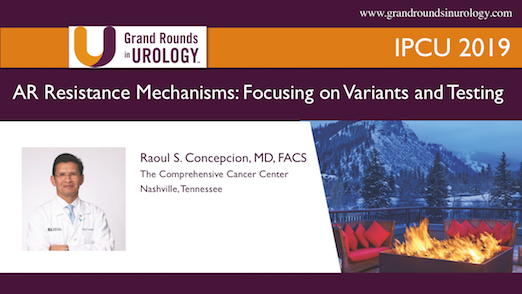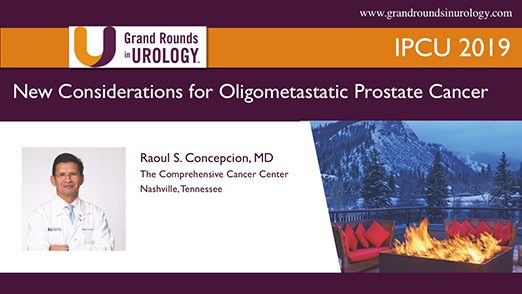Final Results from ACIS Trial of Apalutamide Plus Abiraterone/Prednisone in Patients with Chemo-Naive mCRPC
Raoul S. Concepcion, MD, FACS, Chief Science Officer of U.S. Urology Partners in Nolensville, Tennessee, presents the final results of the ACIS trial, a random double-blind phase III study examining concomitant treatment with apalutamide and abiraterone plus prednisone against abiraterone and androgen deprivation therapy (ADT) in patients with chemotherapy-naïve metastatic castrate-resistant prostate cancer (mCRPC). He provides background, describes the study design and baseline characteristics, and reviews the findings. Dr. Concepcion explains the role of activated androgen receptors and intratumoral androgens in mCRPC. He also describes the concept of androgen annihilation, essentially blocking androgen at both the production and receptor level. The ACIS trial met its primary endpoint, radiographic progression-free survival (rPFS), at a median of 25.7 months of follow up, representing a 31% reduction in risk of radiographic progression or death. The risk reduction was maintained at 30% in long term follow-up at 54.8 months. However, overall survival was similar between treatment arms. Likewise, the secondary endpoints, time to initiation of cytotoxic chemotherapy, time to pain progression, and time to chronic opioid use, were also similar. Lastly, Dr. Concepcion notes that no new safety signals were observed and patient quality of life was comparable between treatment arms.
Read More


